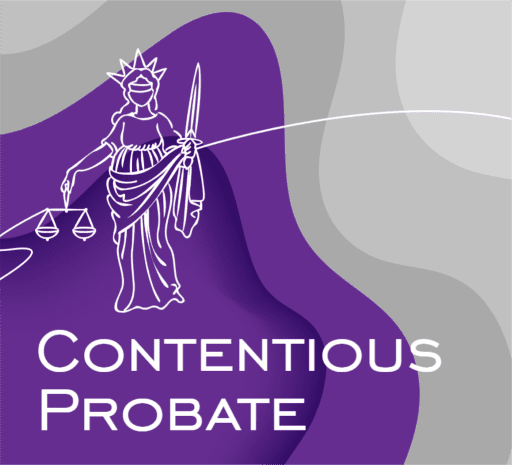In a landmark decision on December 18, 2024, the UK Supreme Court delivered its judgment in the case of Hirachand v Hirachand [2024] UKSC 43, providing critical clarity on the treatment of Conditional Fee Agreement (CFA) success fees in claims under the Inheritance (Provision for Family and Dependants) Act 1975 (the “1975 Act”). The Court unanimously ruled that success fees payable under a CFA cannot be recovered as part of an award for reasonable financial provision from a deceased person’s estate. This ruling has significant implications for claimants, legal practitioners, and the administration of estates, particularly concerning access to justice and the financial dynamics of inheritance disputes.
Background of the Case
The case centered around the estate of Navinchandra Dayalal Hirachand, who passed away in August 2016. His will bequeathed the entirety of his estate to his widow, Nalini Hirachand, leaving no provision for their daughter, Sheila. Sheila, who suffered from severe health issues and lacked sufficient income or assets to support herself, initiated a claim under the 1975 Act, arguing that her father’s will failed to make reasonable financial provision for her maintenance.
Due to her financial constraints, Sheila entered into a CFA with her solicitors—a “no win, no fee” arrangement—whereby the solicitors would receive their standard fees plus a 72% success fee if the claim succeeded, and nothing if it failed. The High Court ruled in Sheila’s favour, awarding her £138,918, which included a £16,750 contribution toward the success fee. The court treated her obligation to pay the success fee as a debt, considering it part of her financial needs under the 1975 Act.
Nalini appealed this decision, contending that the court lacked the authority to include the success fee in the substantive award under the 1975 Act. The Court of Appeal dismissed her appeal, leading to a further appeal to the Supreme Court.
Why Choose Us? A Smarter, More Affordable Way to Claim
If you believe you have a rightful claim under the Inheritance Act 1975, you may still be entitled to financial provision from an estate. However, as the Hirachand case shows, the wrong legal arrangement can leave you with hefty costs—like Sheila’s 72% success fee, which drastically cut into her award.
Unlike other firms that charge excessive success fees, our firm believes in fair, transparent, and affordable legal services. We offer no-win, no-fee agreements with success fees capped at just 25%—far below the industry average.
This means you can pursue your inheritance claim without the burden of unfairly high legal fees, maximising the amount you actually receive.
The Supreme Court’s Judgment
The Supreme Court faced the pivotal question: Can a CFA success fee be considered a debt constituting a “financial need” under the 1975 Act, thereby allowing the court to make provision for it in an award? In a unanimous decision, the Court concluded that it could not.
Lord Richards, delivering the judgment, emphasised that while the term “maintenance” under Section 1(2)(b) of the 1975 Act could encompass payments to fund legal costs, the inclusion of success fees as part of a substantive award would contravene the established costs regime in civil litigation. He noted that litigation costs are traditionally addressed separately from substantive relief, recoverable only through specific costs orders. Allowing success fees to be included in substantive awards would undermine this separation and lead to inconsistencies in the application of the law.
Furthermore, the Court highlighted that Section 58A(6) of the Courts and Legal Services Act 1990 explicitly prohibits the inclusion of success fees in costs orders. Permitting their recovery through substantive awards would effectively circumvent this statutory prohibition, creating an incoherent legal framework. The Court also expressed concern that such a practice could open the door to similar claims in other areas of civil litigation, potentially leading to a significant shift in the costs landscape.
Implications of the Ruling
This judgment has far-reaching consequences for various stakeholders:
- Claimants must now pay success fees from their own award, making CFA-funded cases riskier. Individuals seeking to challenge a will under the 1975 Act must now recognise that any success fee agreed upon in a CFA will not be recoverable from the estate. This places a greater financial burden on claimants, who must either secure alternative funding arrangements or be prepared to allocate a portion of their awarded provision to cover legal fees. This could deter individuals with legitimate claims but limited financial means from pursuing justice, potentially leaving them without adequate provision.
- Solicitors may need to reassess the viability of CFAs in inheritance disputes. The inability to recover success fees from the estate could make such arrangements less attractive, especially in cases where the claimant’s financial recovery is uncertain or the estate’s value is modest. Practitioners might explore alternative funding models, such as third-party litigation funding or legal expense insurance, to ensure access to justice for clients with meritorious claims but limited resources.
- For executors and beneficiaries, this ruling provides clarity and potentially reduces the financial exposure of estates to additional claims. It may lead to a decrease in speculative claims, as the financial risks for claimants have increased. However, executors must still exercise diligence in ensuring that wills provide reasonable financial provision to dependants to mitigate the risk of legitimate claims under the 1975 Act.
Access to Justice Concerns
While the Supreme Court’s decision reinforces the integrity of the existing costs regime, it raises concerns about access to justice. Claimants who lack the financial means to fund litigation upfront may find it challenging to secure legal representation, as CFAs become less feasible without the prospect of recovering success fees. This could disproportionately affect vulnerable individuals who are most in need of financial provision from an estate.
Legal aid is generally unavailable for inheritance disputes, and alternative funding options may not be accessible or suitable for all claimants. The legal community and policymakers may need to consider reforms or support mechanisms to address this gap, ensuring that individuals are not unjustly barred from pursuing legitimate claims due to financial constraints.
Conclusion
The Hirachand v Hirachand ruling delineates the boundaries of recoverable costs in inheritance disputes, emphasising the separation between substantive awards and litigation costs. While it provides clarity and upholds the current legal framework, it also highlights the need for careful consideration of funding arrangements in 1975 Act claims. Claimants and legal practitioners must navigate this complex landscape to balance the pursuit of justice with the financial realities imposed by this significant judgment.
Meet Patrick Smith – Head of Litigation

Patrick Smith is a Director and Solicitor, and Head of Litigation at our firm. With over 40 years of global legal expertise, Patrick is a seasoned litigation attorney specialising in Civil and Commercial Litigation, Contentious Probate, and Dispute Resolution.
Patrick has a proven track record in:
- Inheritance Laws
- Property Disputes
- TOLATA (Trusts of Land and Appointment of Trustees Act)
- Litigation
- Insurance Law
- Contract Disputes
His extensive experience and strategic approach make him an invaluable asset to clients navigating complex legal battles. Whether you need guidance in an inheritance dispute or assistance in contentious probate matters, Patrick ensures expert representation tailored to your needs.
Contentious Probate: Are Estate and Inheritance Disputes a Concern for You?
Have estate and inheritance disputes become a concern for you or your family?
Our team has managed many cases in the past three years, reclaiming millions in assets for our clients.
If you are facing difficulties securing what is rightfully yours, let our expert legal team guide you through the process with clear, affordable, and effective legal solutions.
Contact our team for a consultation today to provide you expert guidance on your legal options.
Luton: +44 1582 383 888
London: +44 2034 393 888
St Albans: +44 1727 519 888
Frequently Asked Questions (FAQ)
1. How long do I have to contest a will in the UK?
You usually have 6 months from the date of the grant of probate to make a claim under the Inheritance Act 1975. However, exceptions may apply in some cases.
2. Can siblings dispute a will?
Yes, siblings can contest a will if they believe they were unfairly excluded, the will was made under undue influence, or there are grounds for fraud or lack of mental capacity.
3. Do I need a solicitor to make a claim under the Inheritance Act 1975?
It is highly recommended to hire a solicitor, as inheritance disputes involve complex legal procedures. Our team of experienced probate solicitors can help maximise your claim.
4. What if the executor is not acting fairly?
If an executor delays distributing the estate or acts unfairly, you can apply to the court to remove them or take legal action to ensure a fair inheritance distribution.



